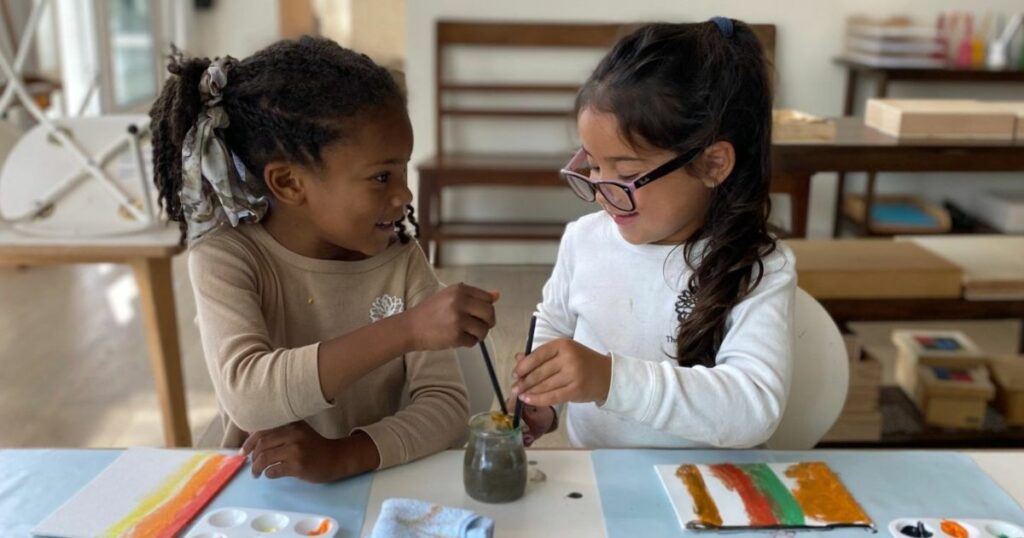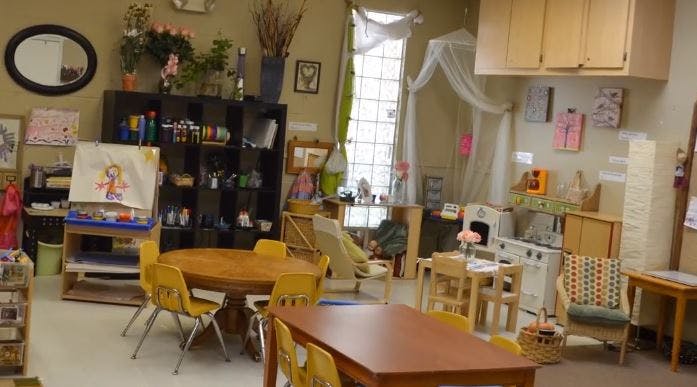Introduction: The Concept of Sensitive Periods
Sensitive periods in childhood refer to critical phases in a child’s development during which they are particularly responsive to certain stimuli or experiences. These are transient, windows of opportunity that open and close as the child grows. We recognize these periods as fundamental to understanding how to best support and guide a child’s natural development.
These sensitive periods refer to timeframes in a child’s life when they show heightened susceptibility to certain environmental stimuli, facilitating natural and rapid development in specific areas. By understanding these windows of heightened receptivity, educators can craft experiences that maximize learning, nurture natural development, and foster a lifelong love for discovery.
Understanding Sensitive Periods
What Are Sensitive Periods?
Sensitive periods are not merely phases or stages. They are temporary states during which a child is driven to acquire certain abilities or knowledge. We know that during these times, children can learn specific skills with apparent ease and enthusiasm.
Why Do Sensitive Periods Occur?
Sensitive periods occur due to the neurological development of the child. The brain’s remarkable plasticity during these periods allows for rapid and robust learning, laying down neural pathways that may last a lifetime. We approach these periods with great care and consideration.
Identifying the Key Sensitive Periods
1. Language Acquisition (Birth to 7 Years)
From birth to around seven years, children are highly receptive to language. We provide a rich linguistic environment, full of opportunities to engage in listening and speaking, supporting the child’s ability to understand and use language.
By acknowledging and nurturing these sensitive periods, Montessori education not only aids in linguistic skills but also fosters a love for communication, understanding, and connection, laying the groundwork for future educational success.
2. Motor Development (Birth to 4 Years)
This period focuses on gross and fine motor skills. We design activities that encourage movement, coordination, and manipulation, fostering both physical growth and self-confidence.
Motor development during the sensitive period of birth to 4 years is vital for a child’s overall growth. The Montessori method identifies this crucial phase and offers an environment conducive to natural exploration and development of physical abilities.
3. Order (1 to 3 Years)
Children in this phase crave order and consistency. We arrange their environment with care, keeping it orderly and predictable, which helps them make sense of the world around them.
The sensitive period for order is a profound phase in early childhood development that shapes a child’s understanding of the world around them. By recognizing and nurturing this sensitivity, Montessori education creates an environment that aligns with the child’s natural drive for consistency and stability.
4. Sensory Exploration (Birth to 6 Years)
During these years, children are driven to explore the world through their senses. We offer a multitude of sensory experiences, allowing them to touch, taste, smell, see, and hear in a structured and supportive environment.
Sensory exploration is not just about stimulating the senses; it’s about providing young children with the tools to understand and interpret the world. The sensitive period for sensory exploration is an opportunity to harness a child’s natural curiosity and develop essential life skills.
5. Social Behavior (2.5 to 6 Years)
This is when children become aware of others and their feelings. We facilitate social interactions, model empathy, and guide them in understanding social cues and norms.
The sensitive period for social behavior is instrumental in shaping a child’s ability to interact with others and function as part of society. Montessori education recognizes and leverages this period to nurture essential social skills, building a foundation for lifelong interpersonal relationships and success in communal environments.
Nurturing Development During Sensitive Periods
Providing the Right Environment
We meticulously create environments that align with the child’s sensitive periods, ensuring that they are engaging, stimulating, and supportive of their current developmental focus.
Understanding Individual Differences
Every child is unique, and their sensitive periods may vary. We attentively observe and respond to individual needs, recognizing that one size does not fit all.
Professional Guidance and Parental Collaboration
We work closely with professionals who understand sensitive periods and collaborate with parents to ensure consistency and reinforcement at home.
Conclusion: A Lifelong Impact
Sensitive periods in childhood are fleeting yet profound. They shape not only the abilities and skills that a child acquires but also their attitudes and dispositions towards learning. By identifying and nurturing these critical phases, we help children embark on a lifelong journey of curiosity, confidence, and compassion.
In conclusion, the recognition and leveraging of sensitive periods in childhood are quintessential to the Montessori philosophy, allowing educators to hone in on the natural inclinations and capabilities of each child. By identifying these unique developmental windows and creating environments that foster growth within them, the Montessori approach ensures that learning becomes a tailored and engaging process.






